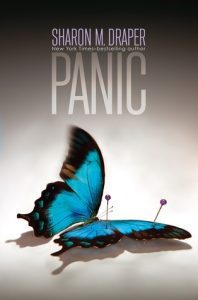Title: Zami: A New Spelling of My Name
Author: Audre Lorde
First published January 1, 1982
256 pages, Paperback
Rating: 4.38
Overview
Daughter of the Flames by Zoë Marriott is a captivating story of a young woman named Zahira. Zahira belongs to the conquered Rua people who are ruled by the Sedorne culture.
After losing her home and foster family, Zahira uncovers a shocking truth about her past and heritage. With the knowledge that it is up to her to bring peace to her country, Zahira must learn to accept her Sedorne roots and bridge the gap between the two cultures.
As Zahira’s ideas for unity become known, her own people begin to question her loyalty, especially after she saves the life of a Sedorne nobleman and falls in love with him. But Zahira is determined to fulfill her epic task, even if it means going against her beliefs and risking her own safety.
About the Author
Audre Lorde was a trailblazing Black feminist who made her mark in the 1960s with her poetry. Her work was published regularly in various anthologies and literary magazines, including Langston Hughes’ 1962 New Negro Poets, USA.
Lorde was politically active during this time, participating in civil rights, anti-war, and feminist movements. Her first collection of poetry, The First Cities, was published in 1968 by the Poet’s Press and edited by her friend and former classmate from Hunter College High School, Diane di Prima.
The book received praise from poet and critic Dudley Randall, who noted the implicit presence of Lorde’s blackness in her writing.
Lorde’s second collection, Cables to Rage (1970), was written during her time at Tougaloo College in Mississippi and explored themes of love, betrayal, childbirth, and the challenges of raising children. The collection includes the notable poem “Martha,” in which Lorde openly expresses her homosexuality: “[W]e shall love each other here if ever at all.” Her later works continued to focus on political activism, including lesbian and gay rights and feminism.
In 1980, Lorde co-founded Kitchen Table: Women of Color Press with Barbara Smith and Cherríe Moraga, which became the first U.S. publisher for women of color. Lorde was also appointed as the State Poet of New York from 1991 to 1992.
Editoral Review
Zami: A New Spelling of My Name by Audre Lorde is a groundbreaking memoir that defies categorization. Published in 1982, it blurs the lines between autobiography, novel, and poetry, giving voice to a black lesbian woman navigating race, gender, and sexuality in the 1950s and 60s.
Audre Lorde was a prolific writer, feminist, and activist who challenged the status quo with her powerful words. Zami is one of her most celebrated works, weaving together personal experiences with political insights, cultural critiques, and literary experimentation.
The book chronicles Lorde’s coming-of-age in Harlem, Puerto Rico, and Europe, tracing her relationships with family, friends, lovers, and fellow artists. She explores the joys and struggles of being black, female, queer, and creative in a world that marginalizes and oppresses those identities.
The prose is lyrical, evocative, and visceral, using imagery, metaphor, and symbolism to convey the depth and complexity of Lorde’s emotions and thoughts. The language is also multilingual, incorporating Spanish, French, and African dialects, reflecting the diversity of Lorde’s heritage and worldview.
The themes of Zami are universal and timeless, resonating with readers of all backgrounds and ages. Whether it’s the quest for identity, the search for belonging, or the resistance to injustice, Lorde’s message is clear: we need to honor our differences, celebrate our similarities, and fight for our rights.
One of the strengths of Zami is its honesty and vulnerability. Lorde bares her soul on the pages, confessing her fears, doubts, and desires with a rawness that is both unsettling and empowering.
She invites the reader to share in her experiences, dreams, and nightmares, creating a deep sense of intimacy and empathy. Another strength is the richness and diversity of the characters.
From her childhood friends to her lovers, from her mentors to her rivals, Lorde paints a vivid picture of the people who shaped her life and helped her to become the woman she is. Each character has a distinct voice, personality, and backstory, adding depth and nuance to the narrative.
The pacing and structure of Zami are also masterful. Lorde balances the slow and the fast, the introspective and the action-packed, the memoiristic and the fictional, with a keen sense of rhythm and tension.
She knows when to slow down and savor a moment, and when to speed up and shock the reader. If there is any weakness to Zami, it might be its complexity and density.
Some readers might find the language and style challenging, or the nonlinear structure confusing. However, these challenges are also part of the book’s beauty and power, forcing the reader to engage with the text on multiple levels and to think critically about the issues and ideas it presents.
Overall, Zami is a must-read for anyone interested in memoirs, feminist studies, queer literature, or social justice. It is a timeless classic that has inspired generations of readers and writers, and continues to do so today.
I give it a rating of 4.5 stars out of 5, based on its originality, creativity, depth, and relevance.



